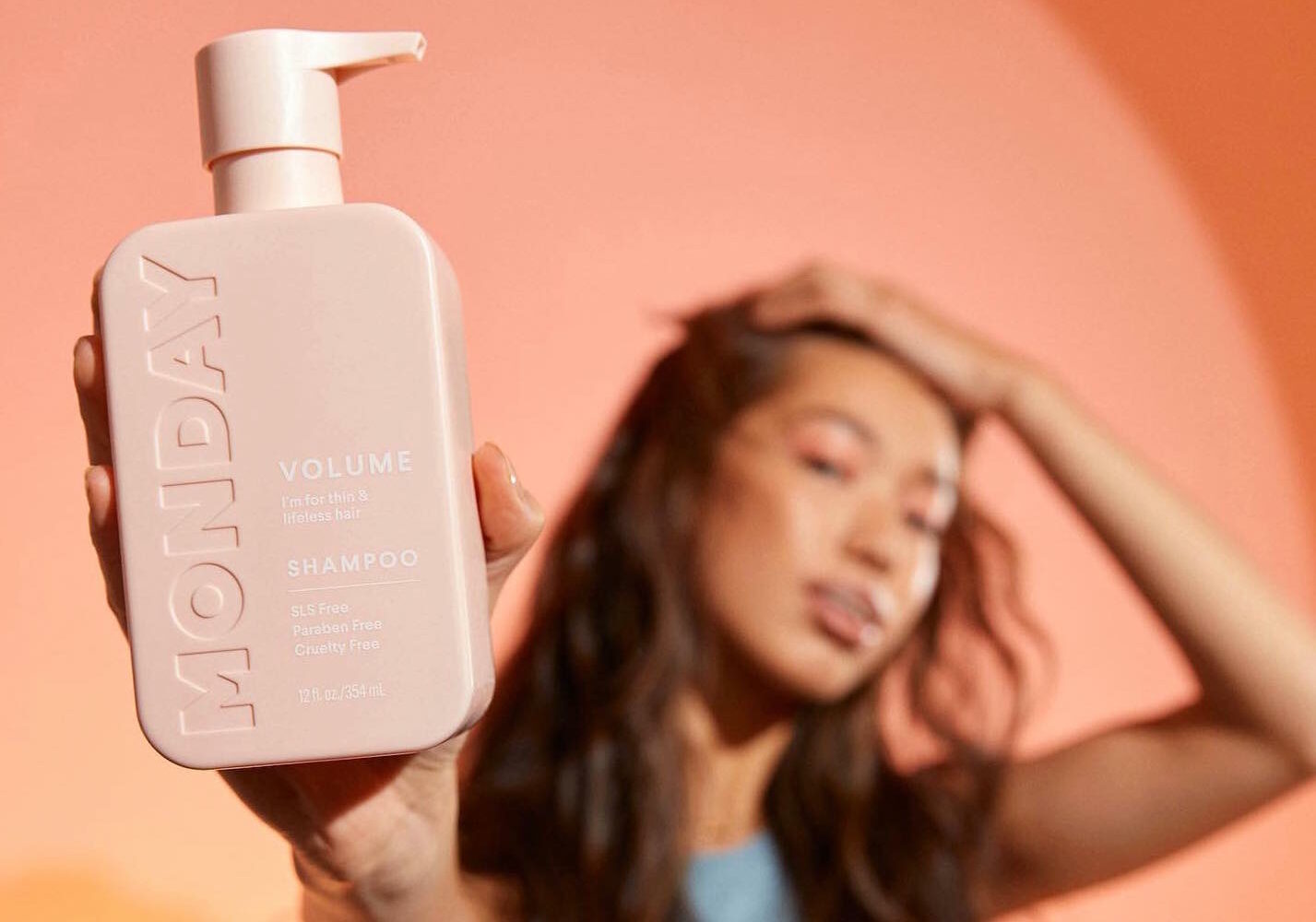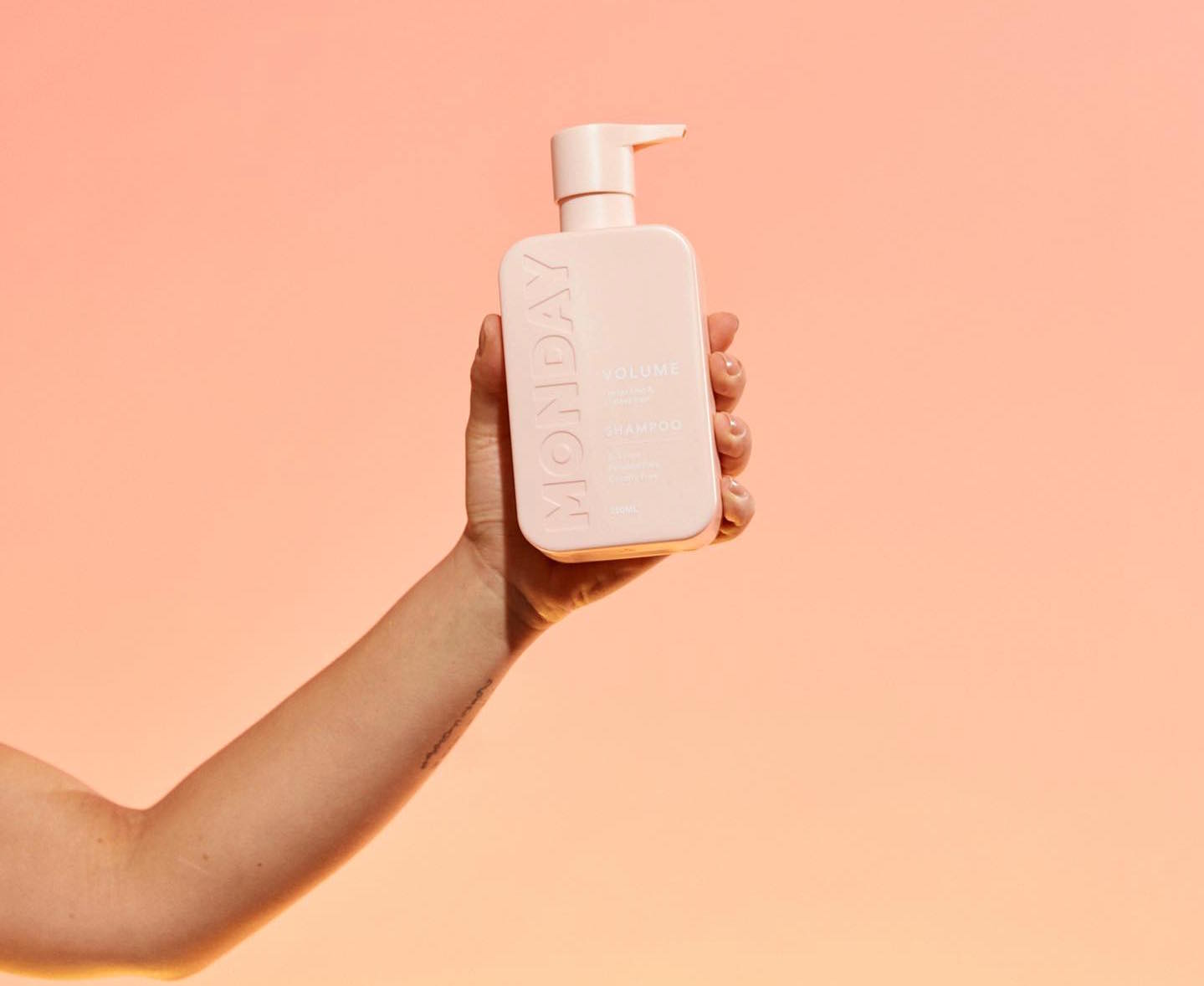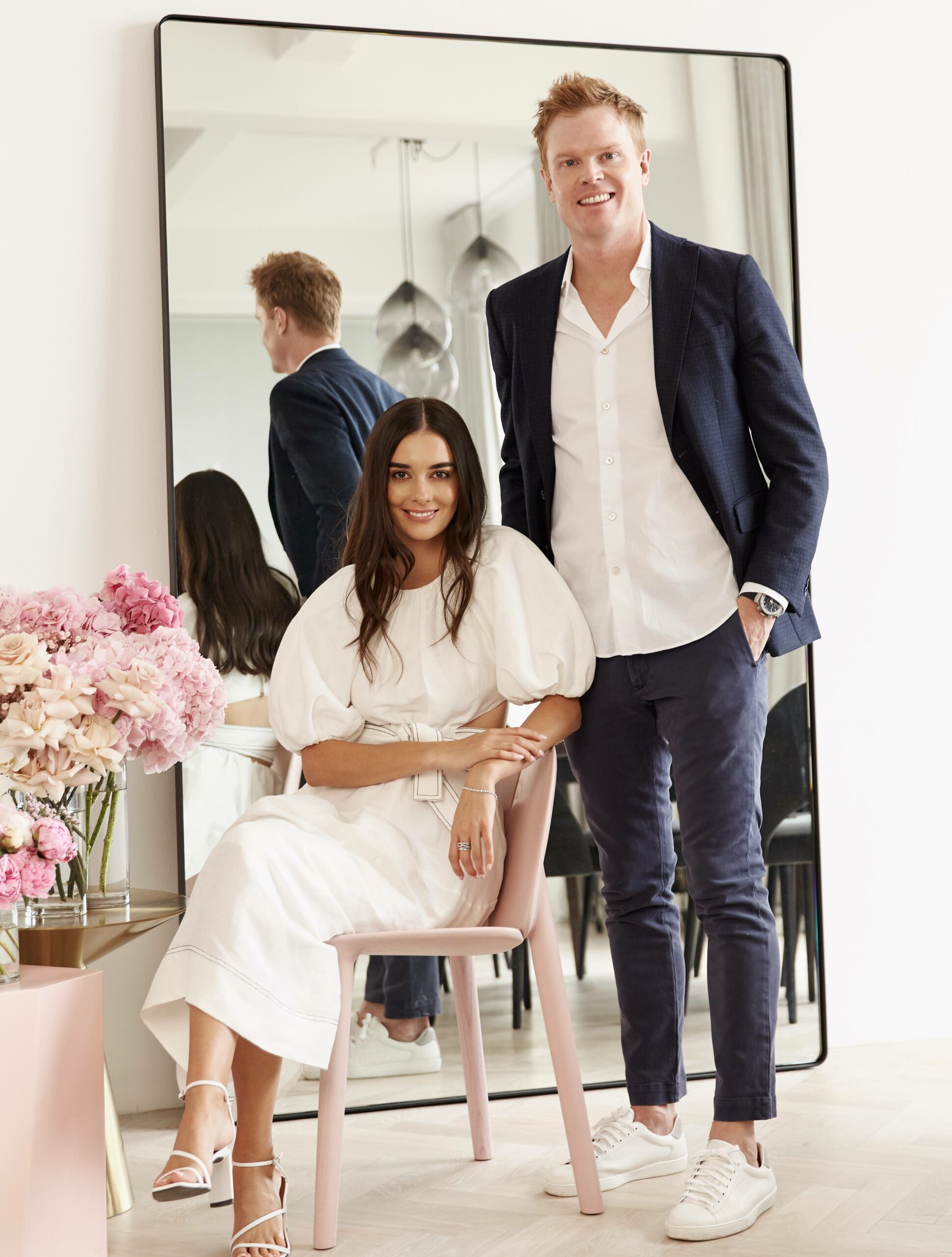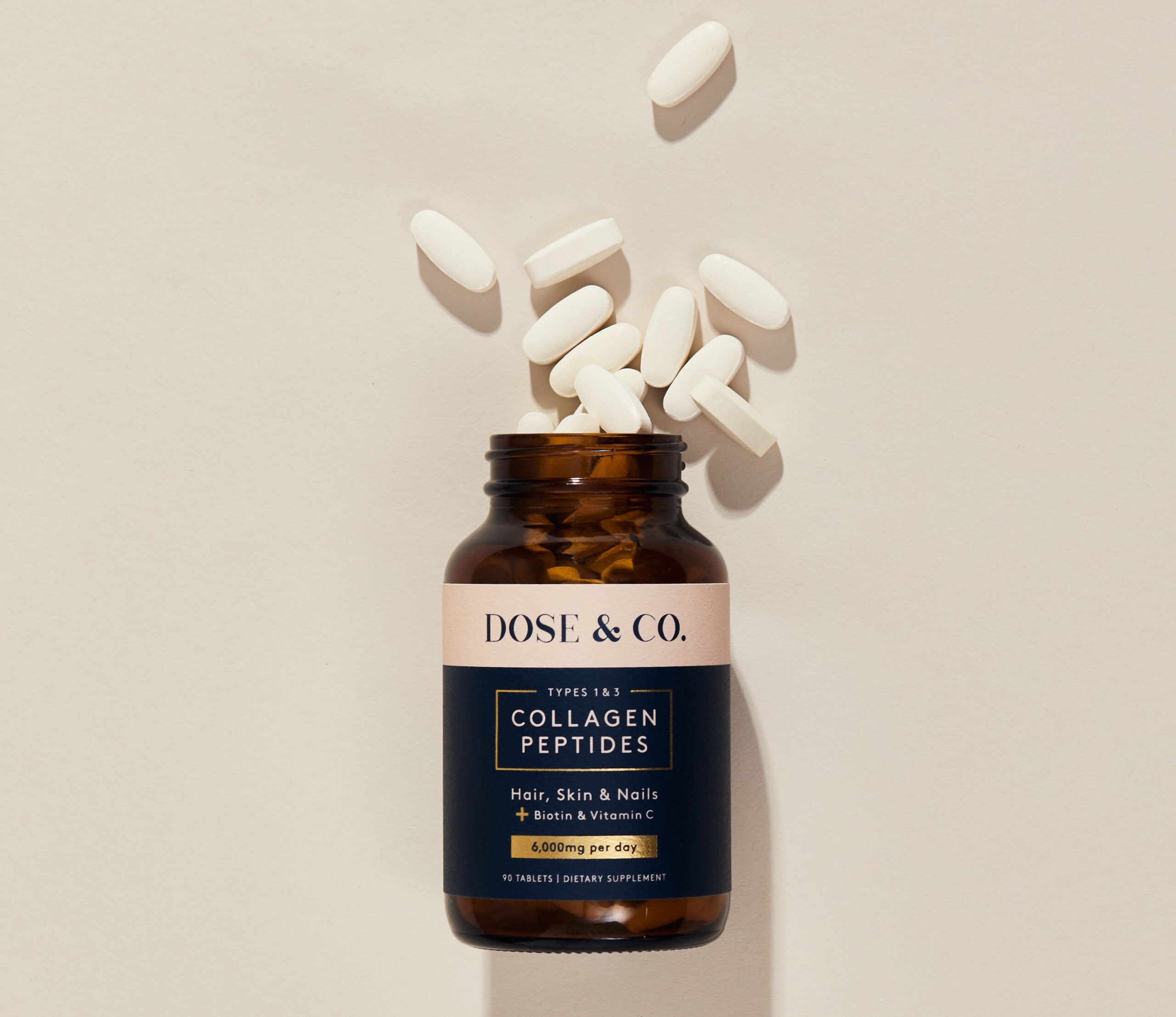
“We Want To Be The 21st Century L’Oréal”: The Big Ambitions Driving The Company Behind Monday Haircare
“We have big ambitions. We want to be the 21st century L’Oréal,” says Nick Mowbray, co-founder and director of Zuru and Zuru Edge. “We always set our sights super high and work out how we are going to get there.”
Expressed by most people, Mowbray’s big ambitions would seem delusional or, at best, foolish. He isn’t most people, though. Along with his brother Mat and sister Anna, he’s built Zuru into a formidable toy company that achieved $1.3 billion in sales last year. It’s been entirely self-funded except for an initial $20,000 loan from the Mowbrays’ parents. In 2021, Zuru was the sixth-largest toy company in the United States and United Kingdom.
Zuru is the outgrowth of a school science project. At 12 years old, Mat devised a hot air balloon that won the New Zealand science fair. “It was basically a flying plastic bag with a plane below it,” says Nick Mowbray. As kids, the brothers sold it door to door. Convinced he could transform his science fair project into a larger toy business, Mat moved to China at 23 years old, and Nick, then 18 years old, dropped out of university, where he’d spent a year, to join him in the country and toy industry.
Today, 36-year-old Nick Mowbray resides in Auckland, and Zuru has nearly 30 offices around the globe, including in Auckland, Shenzhen, El Segundo, Calif., and Bentonville, Ark. It specializes in turning toys into viral phenomena. Zuru’s Mini Brands line of 70-plus collectible versions of items from well-known brands like Teddy Grahams, Hershey’s Chocolate, Icee Slushies, Skippy, Dove, Warheads, Dum Dums and Pez has amassed over 3 billion TikTok views. According to Zuru, a Mini Brands product is purchased every second. The company sold 5 million Pets Alive toys in 2021, and the line of fluffy animal characters has racked up 400 million-plus media impressions in three years.

For Zuru, “Toys are just Phase 1,” declared a 2019 Forbes article. Rather than stick solely to fickle kids who have a stubborn tendency to age out of toys, the company has placed a huge bet on slightly older consumers. Inspired by brands like Harry’s and Glossier, it established the division Zuru Edge to leverage lessons from its experience in the toy business to produce consumer packaged goods brands aimed at gen Z and millennial consumers. “If we stayed on the data-driven edge of marketing, we could create new brands that were relevant to these new audiences and reach them in a really efficient and targeted way,” says Mowbray.
Zuru Edge plays in baby care, beauty, pet, and health and wellness. Rascal + Friends was its first brand. Shortly after it launched in 2017, Mowbray told The New Zealand Herald that the diapers brand was on track to generate $100 million in sales and enter 24 countries in two years. It’s since become the fourth-largest diapers brand globally.
Mowbray credits Rascal + Friends’ traction to it being “a modern brand reaching the modern mom.” Modern millennial moms don’t want Huggies, the rationale goes, they want a brand tailored to their sensibilities and values. Rascal + Friends is vegan and cruelty-free, and has dreamy designs that aren’t overly childish or gender normative.
“We decided, ‘How do we create something that whispers when everything else is screaming on the shelf?’”
Jaimee Lupton, Mowbray’s romantic partner and a former account manager at Australian luxury communications firm Black, came on board in 2018 to help shape Zuru Edge’s brands. The next year, she and Mowbray were studying the shelves at their local grocery store—“We often go to the grocery store and scan the aisles looking for the right categories to disrupt,” says Mowbray—and noticed the haircare shelves were full of brands loading up their packaging with all the copy and colors they could.
They sensed there could be an opportunity for a brand that went the opposite direction and developed Monday, a haircare brand bathed in pink (it blended seven Pantone shades together for the bespoke hue) with a long list of ingredients its formulas don’t have (e.g., SLS and parabens). Lupton says, “Skincare and makeup had been disrupted, but haircare hadn’t been disrupted yet.” Mowbray says, “We decided, ‘How do we create something that whispers when everything else is screaming on the shelf?’”
Mowbray is a believer in market share capture as an indicator of success and using test markets, particularly New Zealand, to reveal quickly whether a brand can capture market share. “One of my favorite sayings is, ‘You either win or you learn,’ so the key is learning when you fail and taking those insights,” he says. “One thing you learn is that, in certain categories, the consumer is more willing to try something new than other categories.”

Toward the end of 2019, Monday made its retail debut at Foodstuffs, New Zealand’s biggest supermarket, and grabbed over 25% haircare market share at the retailer in 20 days. It expanded to Coles Supermarkets in Australia and, within three months at Coles, overtook Pantene, the legacy brand that had been the retailer’s market share leader in haircare.
From New Zealand and Australia, Monday has stretched to a total of 10 markets and 25 retailers. In the United Kingdom, the brand is carried by Tesco. Boots is slated for later this year. Early last year, Monday broke into the United States with a chain-wide rollout at Target. Early this year, it arrived at 800 Walmart doors. Monday has also landed at CVS, Ulta Beauty and Costco. At Costco, it became the No. 1 haircare brand in a matter of weeks, per Mowbray. Zuru Edge expects Monday to profitably cross $100 million in 2022 sales.
Overall, Zuru Edge discloses its brands have yielded just under $300 million in sales. In addition to Monday, it’s brought the supplement brands Health by Habit and Dose & Co., which is affiliated with nutritionist and naturopath Libby Matthews, and Khloé Kardashian, to the U.S. Health by Habit is available at Walmart and Target. Dose & Co. is at Target, The Vitamin Shoppe and Wegmans.
“Our model is fundamentally different to most of the incubators in the U.S. that go out and raise lots of money and spend it on customer acquisition.”
Among other brands in Zuru Edge’s portfolio are unisex diaper brand Millie Moon, disinfectant brand Bactive, pet food brand Nood, infant formula brand Haven and period care brand Me. Lupton shares Zuru Edge is planning to release a fragrance-forward soap brand, another haircare brand and a deodorant brand. She says, “Not everything is always going to be as successful as Monday, but, when they are as successful as Monday, we put resources and focus into it, and get behind it.”
Zuru Edge has 250 employees. There are about 15 specifically dedicated to Monday. (By contrast, Zuru has more than 5,000 employees.) The company tends to begin its brands with outsourced manufacturing and, once the brands prove themselves, they’re manufactured in-house. It’s erected a 60,000-square-meter diaper factory, and Mowbray says it will manufacture about 2 billion diapers this year. Zuru Edge recently opened a haircare lab guided by formulation experts.
“We are going up against the Pantenes of this world, so we need to be able to hit mass retail prices and still be able to manage margin,” says Mowbray. “It’s important to be vertical to be able to do that, and controlling quality is super important.” Monday’s products are primarily priced from $7.99 to $15.99.

In the U.S., Zuru Edge has kicked off substantial marketing efforts as its brands have appeared at retail. Its influencer campaigns associated with Monday and Health by Habit are called Monday Muse and Creatures of Habit, respectively. The campaigns have tapped influencers outside of the health and beauty space such as a professional ballet dancer, botanical authority, baker and pet fashion brand founder. Zuru Edge eschews traditional media. A February article by the publication Glossy reports it’s committing 80% of its marketing and advertising budget to TikTok.
Monday is the most-liked haircare brand and the second-most followed haircare brand on TikTok. It has 7.3 million likes and 164,100 followers on the short-form video social media network. In two months, the brand estimates 50,000 hours of its TikTok ad content have been watched. Monday has a presence on Instagram and Facebook, too. It’s racked up 450 million Facebook impressions and 56 million engaged Facebook users. On Instagram, it’s connected with 318 million accounts and has 100,000 followers.
Dissimilar from many brand incubators that have proliferated in the beauty and personal care sector with a mixed track record, Zuru Edge is supported by a massive toy business and concentrates on brick-and-mortar retail rather than direct-to-consumer distribution. “Our model is fundamentally different to most of the incubators in the U.S. that go out and raise lots of money and spend it on customer acquisition,” says Mowbray. “We have our unique DNA at Zuru, and we continually apply our DNA to things with this notion of constant improvement and gains.”
Whether it’s in his DNA or a nurtured trait, Lupton says Mowbray’s passion for Zuru’s growth is in part due to a competitive streak. “He’s very competitive,” she says. He chimes in, “It’s fun. If it’s about the money, you are probably not going to be very good at it.” And Mowbray quips that Lupton isn’t far behind him in the competitive department. He says, “I’ve now created a monster.”





Leave a Reply
You must be logged in to post a comment.